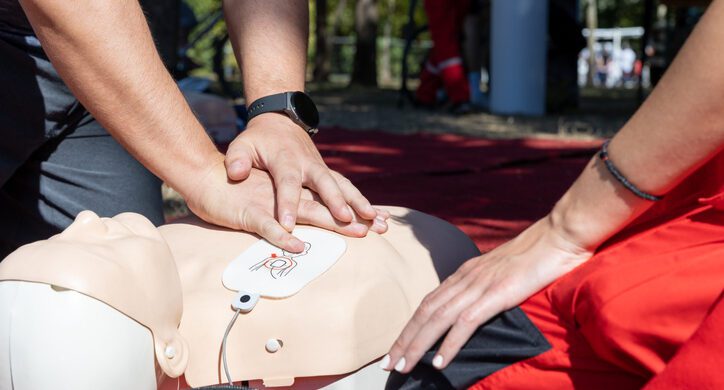Childcare providers play a vital role in the well-being and safety of children entrusted to their care. In any childcare setting, emergencies can arise unexpectedly, and knowing how to respond quickly and effectively can make all the difference. Childcare CPR training equips caregivers with the skills necessary to respond to life-threatening situations, providing a safe and secure environment for children in daycares and schools. This article explores the significance of childcare CPR training and its impact on the overall safety and well-being of children.
Immediate Response Saves Lives
In childcare settings, time is of the essence when responding to emergencies. Whether it’s a choking incident, a sudden cardiac arrest, or any other medical emergency, knowing how to perform CPR can be the difference between life and death. Immediate intervention increases the chances of a positive outcome, making CPR training a critical component of childcare education.
Choking Hazards Are Common in Childcare Environments
Young children, in particular, are prone to putting objects in their mouths, which can lead to choking. Childcare providers need to be prepared to respond swiftly and appropriately to choking incidents. CPR training includes techniques for clearing airways and performing abdominal thrusts, ensuring that caregivers can act confidently in such situations.
Sudden Cardiac Arrest Can Occur at Any Age
While it may be less common in children, sudden cardiac arrest can still occur due to underlying medical conditions or unforeseen circumstances. Childcare providers trained in CPR are equipped to recognize the signs of cardiac arrest and initiate immediate resuscitation efforts. Every second counts in such situations, and knowing how to perform CPR can be life-saving.
Confidence and Competence in Emergency Situations
Childcare CPR training not only provides caregivers with the necessary skills but also instills confidence in their ability to handle emergencies. Knowing what to do in high-stress situations can prevent panic and ensure that the appropriate actions are taken promptly. This confidence is invaluable for both caregivers and the parents who entrust their children to their care.
Complementing First Aid Knowledge
Childcare CPR training goes hand in hand with first aid knowledge, creating a comprehensive skill set for caregivers. While first aid addresses a wide range of injuries and illnesses, CPR specifically focuses on life-threatening situations that require immediate intervention. Together, these skills form a powerful toolkit for providing emergency care in childcare settings.
Meeting Regulatory Requirements
Many regulatory bodies and licensing agencies require childcare providers to have CPR certification. This requirement is in place to ensure that childcare professionals are adequately trained to respond to emergencies. By investing in CPR training, childcare facilities not only meet regulatory standards but also demonstrate a commitment to the safety and well-being of the children under their care.
Promoting a Culture of Safety and Preparedness
Childcare CPR training fosters a culture of safety and preparedness within the childcare environment. Caregivers become proactive in identifying potential hazards, implementing safety protocols, and taking preventive measures. This proactive approach creates a safer environment for children and helps prevent emergencies from occurring in the first place.
Empowering Parents and Caregivers
CPR training is not limited to childcare providers alone. Parents and other family members can also benefit greatly from learning these life-saving skills. When parents and caregivers are trained in CPR, they become a critical link in the chain of survival. In the event of an emergency, their ability to administer CPR while waiting for professional help to arrive can significantly improve outcomes.
Building Trust with Parents
Parents place a tremendous amount of trust in childcare providers to keep their children safe. Knowing that caregivers are trained in CPR provides peace of mind and reassurance. It demonstrates a commitment to the well-being of the children and fosters a strong sense of trust between parents and childcare providers.
Childcare CPR training is not just a regulatory requirement; it is a critical component of ensuring the safety and well-being of children in daycare centers and schools. Immediate response, competence in emergencies, and a proactive approach to safety are just a few of the benefits that come with CPR training. By investing in this essential skill, childcare providers create a safer environment and empower themselves to respond effectively in life-threatening situations. Ultimately, the impact of childcare CPR training extends far beyond the classroom, reaching into the hearts and lives of the children and families it serves.
Y-CPR Academy provides American Heart Association (AHA) CPR training classes with professional, certified AHA instructors who teach CPR to workplaces, healthcare providers, childcare providers, individuals, and groups. Contact Y-CPR Academy today to learn more and ask about our mobile classes.

